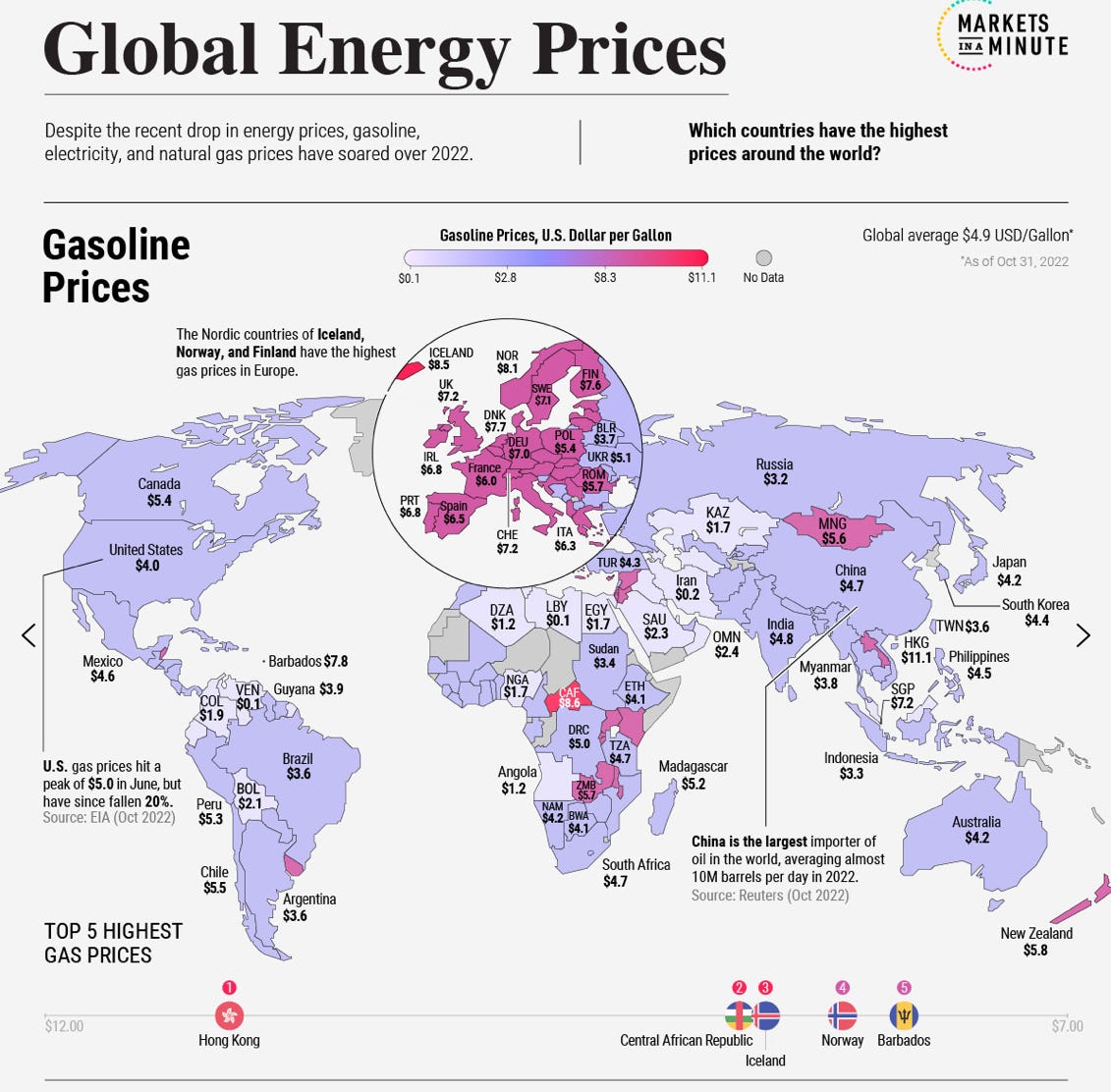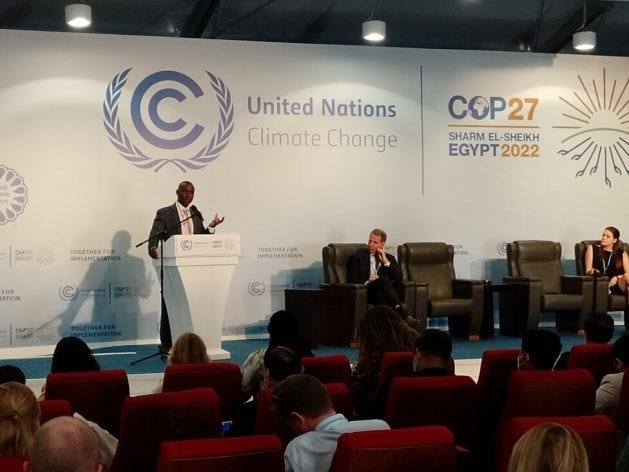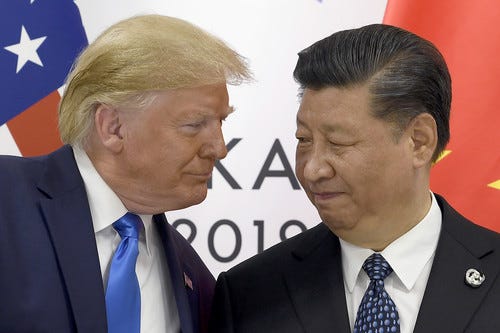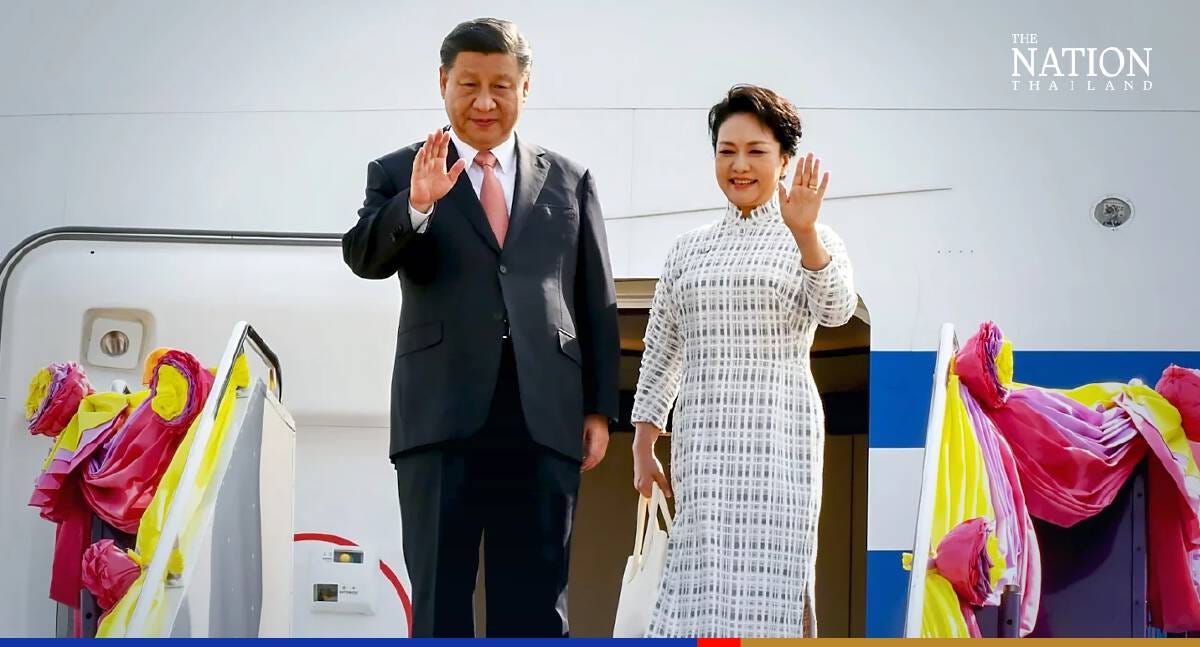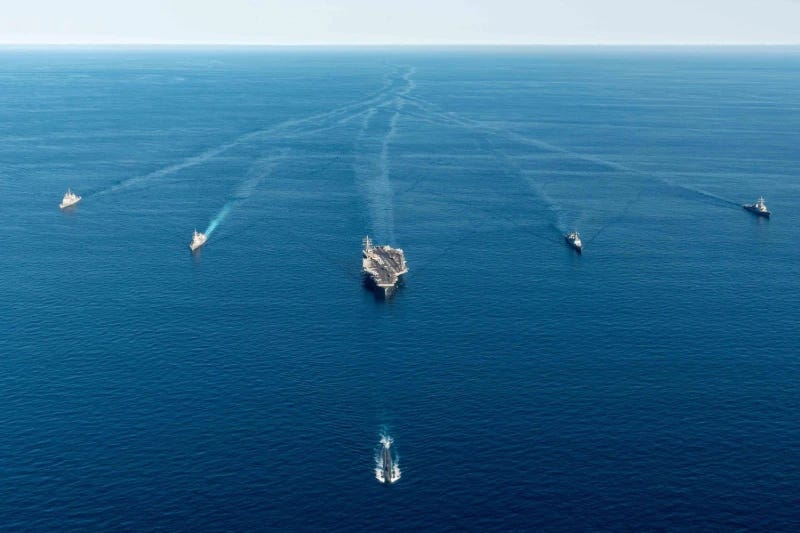Can Great Power Rivalry Run Out of Energy?
Globalism is taking a new form - the multi-polar Global South and the US-led globalisation of NATO demonstrate how domestic US politics drive global tensions.
UPDATE: Your intrepid editor thought he had contracted COVID, but it turns out it is just post-travel flu and confinement to his condo for a day or two.
Today’s Long Mekong Daily looks at global energy price spikes following the Ukraine crisis and nowhere is in more pain than the NATO members of the EU. COP27 demonstrates that the transition away from fossil fuels is quickening as energy importers seek to accelerate the use of renewables. The original architect of the US strategy to split the EU from Russian energy, Donald Trump, launched his 2024 presidential bid with a rambling attack on China and proved once again that the political glue of US politics is a foreign demon. Xi Jinping arrives at APEC and addresses great power rivalry saying, “No attempt to wage a new cold war will ever be allowed by the people or by our times.” Finally, Long Mekong Daily provides a near complete list of the ASEAN summit statements and declarations including the report on Myanmar.
Mapped: Global Energy Prices, by Country in 2022
For some countries, energy prices hit historic levels in 2022. Gasoline, electricity, and natural gas prices skyrocketed as Russia’s invasion of Ukraine ruptured global energy supply chains. Households and businesses are facing higher energy bills amid extreme price volatility. Uncertainty surrounding the war looms large, and winter heating costs are projected to soar.
Given the global consequences of the energy crisis, this Markets in a Minute from New York Life Investments shows the price of energy for households by country.
Read full article here.
COP27 is unlikely to produce new commitments to reduce emissions of climate-changing gases, but the global energy crisis will eventually prompt more action by countries to move away from fossil fuels. That is the positive feeling that many observers are taking away from the annual climate summit being held in Egypt.
“The rise in energy prices due to Russia’s invasion of Ukraine set back many countries in the transition to renewable energies in 2022,” Manuel Pulgar Vidal, global leader of Climate & Energy at WWF, told IPS. “But this is not going to last, because developed nations have proven that the best path to energy security is to accelerate the abandonment of fossil fuels.” The issue is seen from the same point of view in some countries of the developing South.
Costa Rica’s Minister of Environment and Energy Franz Tattenbach Capra was emphatic in an interview with IPS: “Countries like ours, which don’t have oil or gas, are appalled by the price increases. This will lead us to try to become less dependent on imports.” The close relationship that has been established between climate action and economic development is easy to see at the 27th Conference of the Parties (COP27) to the United Nations Framework Convention on Climate Change, which has drawn more than 33,000 people to this seaside resort town on the Sinai Peninsula. This link goes far beyond the negotiations between the 193 States Parties on climate change mitigation and adaptation, which this year focuses on climate action, as highlighted by the summit’s slogan: “Together for Implementation”.
Read the full article here.
Trump Launches 2024 Campaign with China China China
Donald Trump launched his GOP presidential bid on Tuesday and made clear that he sees fresh political capital in vilifying China. In a rambling, hour-long declaration speech Trump used the phrasing “the China virus,” to refer to Covid-19 and said U.S. energy supply challenges meant that China is “watching us die and they’re laughing as it happens.” He also accused the Chinese government of playing “a very active role in the 2020 election,” an implicit reference to his allegations during the campaign that China unlawfully influenced the election in favour of President Joe Biden.
That rhetoric suggests that Trump will seek to weaponise growing American public concern about China’s potential threat to U.S. national security as a key electoral plank in his campaign to be the GOP presidential candidate in 2024. “China is foundational to Trump's brand,” said Bryan Lanza , a GOP political strategist at Mercury Public Affairs in Washington, D.C.“I wouldn't be surprised if Trump establishes some tough positions on China in the campaign, that Joe Biden will parrot … [because] China’s top of mind for every American, especially coming out of Covid.”
Read the full article here.
The Asia-Pacific is no one's backyard and should not become an arena of big power rivalry, China's President Xi Jinping said on Thursday, warning against Cold War tensions in a region that is a flashpoint of competition between Beijing and Washington. Xi's remarks ahead of an Asia-Pacific Economic Cooperation (APEC) summit in Bangkok were an apparent reference to U.S. efforts with regional allies and partners to blunt what they see as China's growing coercive economic and military influence. "No attempt to wage a new cold war will ever be allowed by the people or by our times," Xi said in written remarks prepared for a business event linked to the summit. "We should follow a path of openness and inclusiveness," he said in the speech, which was provided by organisers, adding the region should not turn into "an arena for big power contest." "Unilateralism and protectionism should be rejected by all; any attempt to politicise and weaponise economic and trade relations should also be rejected by all."
Read full article here.
A new quad is coalescing in the Indo-Pacific, and it is likely to have an even greater impact than the Quadrilateral Security Dialogue, a grouping that brings together Australia, India, Japan, and the United States. The new alignment is coming about as Australia, Britain, Japan, and the United States increasingly align their security interests against the growth of China’s influence and power. The prospect of adding Japan to the Australia-United Kingdom-United States defense cooperation pact, established in 2021 and known as AUKUS—which would turn the group into JAUKUS—could transform security cooperation among liberal democracies in the Indo-Pacific like no other previous alliance or quasi-alliance has managed.
Such a partnership was not preordained. Indeed, reports earlier this year that Japan was quietly being asked about joining AUKUS were quickly denied by Tokyo; then-White House press secretary Jen Psaki also dismissed the idea. But Japan looks to be aligning itself with the trio nonetheless, part of a strategic revolution that has not only transformed Tokyo’s security posture but turned it into an increasingly important actor in the Indo-Pacific. Under Japanese Prime Minister Shinzo Abe, who was assassinated in July, Japan dropped most restrictions on joint weapons development, steadily increased its military budget, and embraced a more active defense posture, including allowing its military forces to engage in collective self-defense with partners.
Report by the Special Envoy to Myanmar
Guided by the ASEAN Charter and the ASEAN’s principles, the Special Envoy of the ASEAN Chair (SEAC) paid two working visits to Myanmar to carry out his mandate as stipulated in the 5PC. Prior to each working visit, the SEAC always shared with his colleagues what he plans to do, and also sought their views on the best course of action to make progress. Moreover, the SEAC also had numerous meetings with external partners, the UNSG SE, Japan’s Special Envoy, UN Specialized Agencies, and other international organizations to receive updates and exchange views on how ASEAN and its partners can promote synergy and cooperation, especially in the area of humanitarian assistance.
Despite the complexity and difficulty of Myanmar’s political crisis, it is fair to say that the SEAC has managed to make some positive progress in the implementation of the 5PC, though not all points are moving at the same pace and scale. Since the beginning, Cambodia as the present ASEAN Chair and her Special Envoy prioritize immediate cessation of violence and ceasefire, and in all the engagements with the SAC, Samdech Prime Minister always urged for utmost restraint, and dialogue to start without delay. During the working visits, the SEAC extended this call to all armed groups including the NUG/PDF, because everyone has a share in inflicting harms and suffering on innocent people.
Read the full report here.
40th and 41st ASEAN Summits and Related Summits
Statements and Declarations
Chairman’s Statement of 2nd ASEAN Global Dialogue: Post-Covid-19 Comprehensive Recovery
Joint Media Statement of the Second ASEAN Economic Minister (AEM) – United Kingdom (UK) Meeting
ASEAN-China Joint Statement on Strengthening Common and Sustainable Development
Joint Statement on ASEAN-India Comprehensive Strategic Partnership
ASEAN-Canada 45th Anniversary Commemorative Summit Joint Statement
ASEAN Leaders’ Review and Decision on the Implementation of the Five-Point Consensus
ASEAN Leaders’ Vision Statement on “ASEAN A.C.T.: Addressing Challenges Together”
ASEAN Leaders’ Statement on ASEAN Connectivity Post-2025 Agenda
ASEAN Leaders’ Statement on the Application of Timor-Leste for ASEAN Membership
ASEAN Declaration on Portability of Social Security Benefits for Migrant Workers in ASEAN
Declaration on The Digital Transformation of Education Systems in ASEAN
ASEAN Leaders’ Declaration on Ending Inequalities and Getting on Track to End AIDS by 2030
Other Documents




